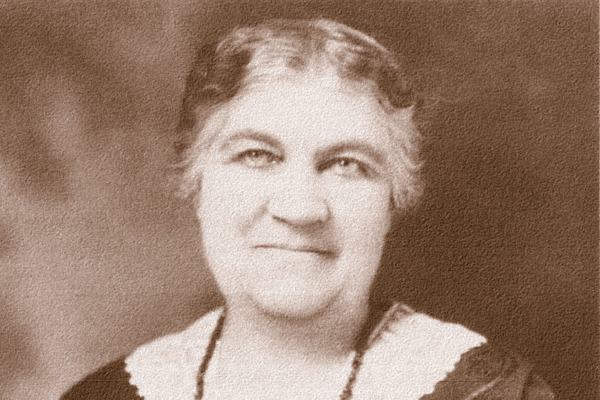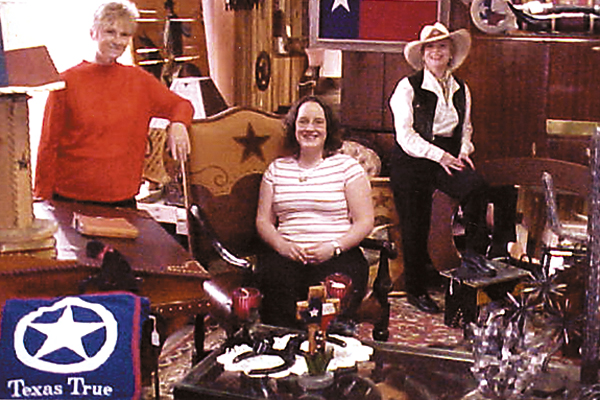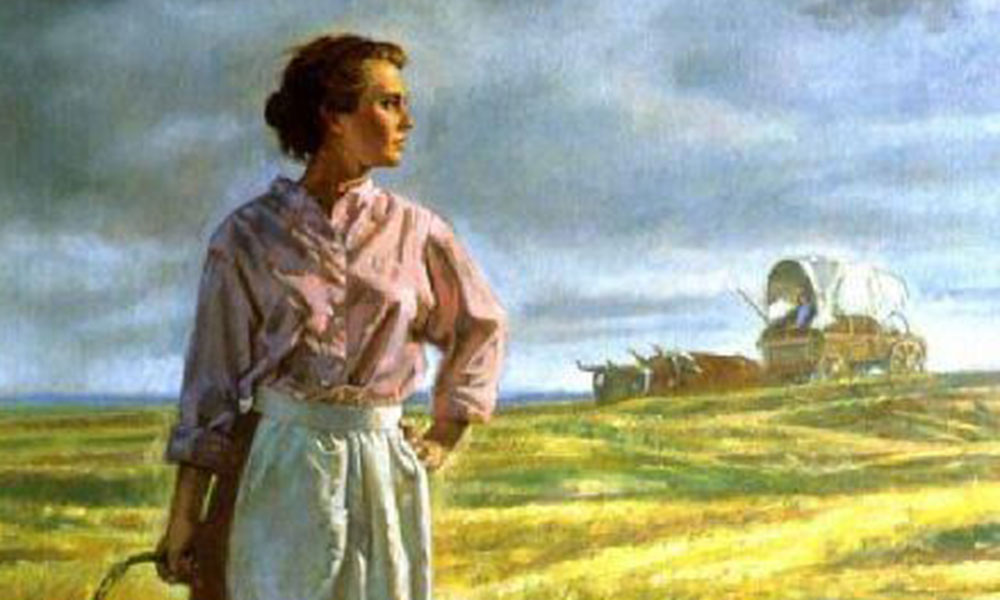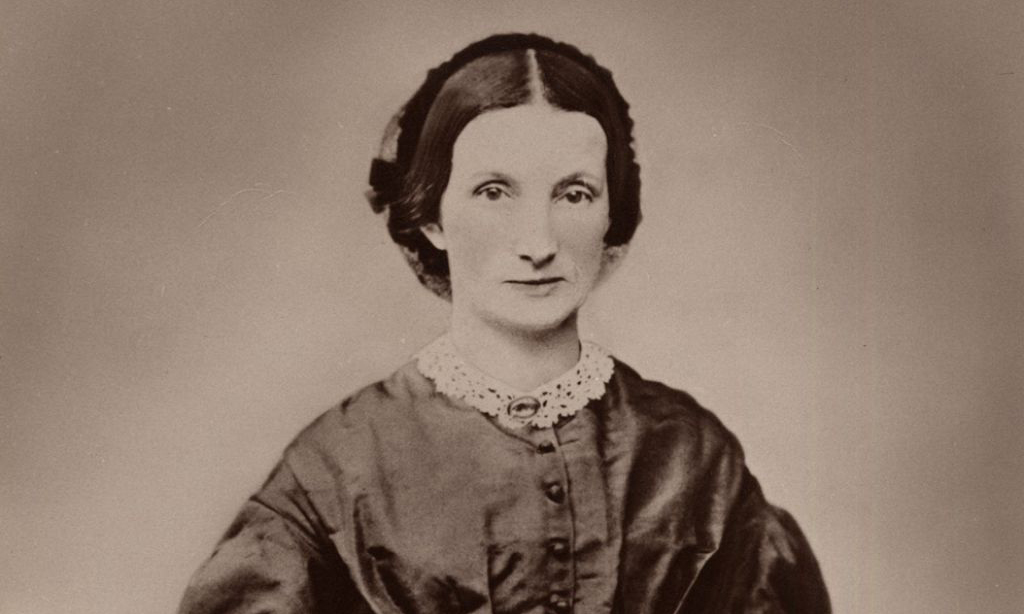 Who would ever think a Russian peasant emigrant of the late 1800s would one day become a beacon for literacy in America?
Who would ever think a Russian peasant emigrant of the late 1800s would one day become a beacon for literacy in America?
But that is the story of Christina Hillius, a German/Russian who settled in Dakota Territory and whose life demonstrates the challenges and triumphs of thousands of European women who made a new life in a new country.
Christina Netz Hillius was 26 in 1887 when she spent 10 days on a ship from Russia to New York with her husband John and their three-year-old daughter Bertha. Another three days on a train brought them to Ellendale, North Dakota, where they joined family members who’d emigrated earlier.
For $200 credit (repayable at 36 percent interest!), they bought a quarter section (160 acres) of land, borrowed machinery from John’s uncle and planted the first crop in the spring of 1888. The couple built a two-room house from over 4,000 sun-dried bricks, and as biographer Gordon L. Iseminger reports in a series for the State Historical Society of North Dakota, “Christina laid every brick herself.”
In the middle of a blizzard, she gave birth to her first son Theodore in a house that lacked windows. And along with John, she struggled with the crops and garden that provided their food. But an accident that tore off John’s left hand and wrist ended their farming days just two years after their arrival. They still owed $250 on the land. Records show they sold their claim to two men for $10—it’s presumed the men also paid off their debt.
Although it doesn’t sound like much to show after two years of hard work, it was enough to allow the couple to buy a small, one-room building in Ellendale for $8. There, the family welcomed a new addition, Otto, as Mom took in washing and Dad herded the town cattle to support the family.
Just six years after coming to America, Christina first showed her skill as a businesswoman. She moved her family to Kulm, and for just $5 down and the promise of future payments, she bought a restaurant along a new rail stretch of the Soo Line. A few years later, she bought the Union Hotel, considered “the neatest and most comfortable on the Soo Line.” The hotel was popular with its guests and also boasted one of the town’s few telephones and an automobile to drive around visitors.
For many years, an often ill Christina relied on her daughter Bertha to help run the hotel. The two women were very close, and Bertha nursed her mother during periods of illness for the rheumatism that plagued her. In 1918, Bertha married and moved to Aberdeen, South Dakota.
The next year, citing her advanced age and difficulty finding help, Christina closed her hotel. At that point, she was almost 60 years old, an admired businesswoman and a grandmother.
At a time when most would have eased back to enjoy their senior years, Christina admitted something important was missing. Although she could read and write German, she could do neither in English—not that unusual in a town where business was often conducted in both languages. But Christina was ashamed that she could not write to her children or grandchildren.
She then did what thousands of emigrants around the country were doing: she enrolled in a “Moonlight School.”
The North Dakota Legislature had passed an act providing for public evening schools, and that is where Christina found herself in 1923 at the age of 62. She was the oldest pupil in the Kulm school. “Her determination and progress earned her the distinction of being the star North Dakota evening school student,” biographer Iseminger notes. Her picture was sent to every school in the state “so that her accomplishments might serve as an inspiration to children and adults alike who were struggling to learn the English language.”
On March 8, 1923, at the close of an eight-week term of evening school, the sponsoring Kulm Civic League declared Christina the outstanding female student, and she spoke at a graduation party on behalf of the other women.
As she would end up telling audiences around the country, one of her greatest joys was she now could read her own daughter’s letters, without having to rely on neighbors for help.
“Christina Hillius suited so admirably the purposes of those trying to Americanize North Dakota’s foreign-born and eradicate illiteracy in the state that, to paraphrase Voltaire, had she not existed, she would have had to have been invented,” Iseminger writes. “This German-Russian immigrant, so recently illiterate in the English language, was living proof of the value of adult education and an inspiring testimony to the efficacy of evening schools.”
“Grandma Hillius” took her message to places she’d never expected to be: to the state prison, to reform schools for girls, to colleges and to the state capitol. One needed a good education, she told them all, “in order to enjoy life and be a good citizen.” She spoke “from the bottom of my heart” about the “new world that one finds after being unable to read or write the language of the land for so many years.” The governor was so impressed with Christina’s efforts that he presented her a commendation and a gold pin.
Christina was widowed in 1930. Shortly after, she was honored as a “Pioneer Mother” by the North Dakota Federation of Women’s Clubs. Then in 1931, she was asked to speak at the World Federation of Education Associations in Denver. The Denver Post hailed her speech as something special: “The audience … will not forget soon the story told in halting English by the former Russian peasant of how she went to night school in order to stand up in front of her little granddaughter without shame.”
Christina Hillius died October 26, 1939, four days short of her 78th birthday. She was survived by her three children and eight granddaughters.






